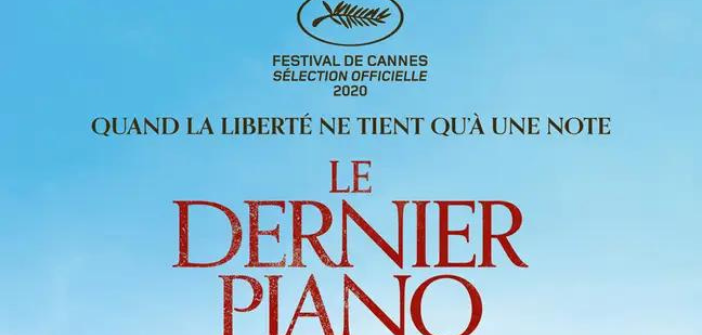Selected at Cannes in 2020, carried by the music of Gabriel Yared, “The Last Piano” by Lebanese director Jimmy Keyrouz is a film about the daily experiences of Syrians. Paradoxically, the film also carries a sense of gentleness and humanity.
There are films like this one that bring you back to the essentials and make you realize the emptiness of some of our problems. “The Last Piano” is one of those. It strikes particularly at this moment when our current events are dominated by an unjust war and an important chapter in our democratic life.
Because in Syria, more than democracy has disappeared: humanity has vanished, with the Taliban banning all culture, installing horror, brutality, and the impossibility of deciding one’s destiny.
Filmed in Lebanon with digitally recreated sets of devastated streets and gutted houses to plant the painful thorn of mourning for the beautiful country that Syria once was, “The Last Piano” tells the daily life of a crushed people, the resourcefulness, the survival. The film is set in 2014.
Karim, a young pianist, lives in hiding with around twenty neighbors. Despite the mortal danger instilled by the erroneous and hateful interpretation of religion by jihadists, life goes on. The elderly play backgammon, women cook or sew, Karim’s cousin prepares for a law exam that might allow her, with a bit of luck, to leave for Europe. He, whenever possible, instills calm, serenity, and melancholy through Schumann or Chopin.
His only escape from barbarity would be to find the sum demanded by a smuggler to flee to Europe. But he would have to sell his mother’s piano. When Abdallah, a former neighborhood friend turned to hatred, fires a Kalashnikov at the instrument, Karim sees his path to freedom suddenly blocked… Unless he manages to find replacement parts. But for that, he needs to go to Ramza, an even more dangerous area. Yet he goes and meets a young resistant there. She will guide him and make him understand that it is time to raise his head.
“The Last Piano” first merits immersing us in the daily reality of a people whose endured horror we tend to forget. Between the arbitrary violence of the Taliban and the shelling by the Syrian army, chances of survival are drastically reduced. And even if what the film shows has already been read in the press or heard on TV (those Quranic schools where jihadists burn history books; that young boy thrown off a building for falling in love with another boy; the summary executions, for a glance), seeing them unfold before our eyes changes the stakes. It is largely a fiction, but it is constructed on several real events.
Directed by Lebanese filmmaker Jimmy Keyrouz, “The Last Piano” is a beautiful and striking work that confronts us with our own fortune of living a life where arbitrariness is largely absent, where we can choose our leaders through voting, where we lack nothing. Whether it’s the Lebanese Tarek Yaacoub (who plays Karim), Rola Beksmati as the cousin Samar, or Sara Abi Kanaan who plays Maya the resistant, they are all very convincing.
It is a great and, moreover, useful film, one we will think about for a long time, especially when we encounter the serious faces of Syrian refugees in our calm and serene streets.


